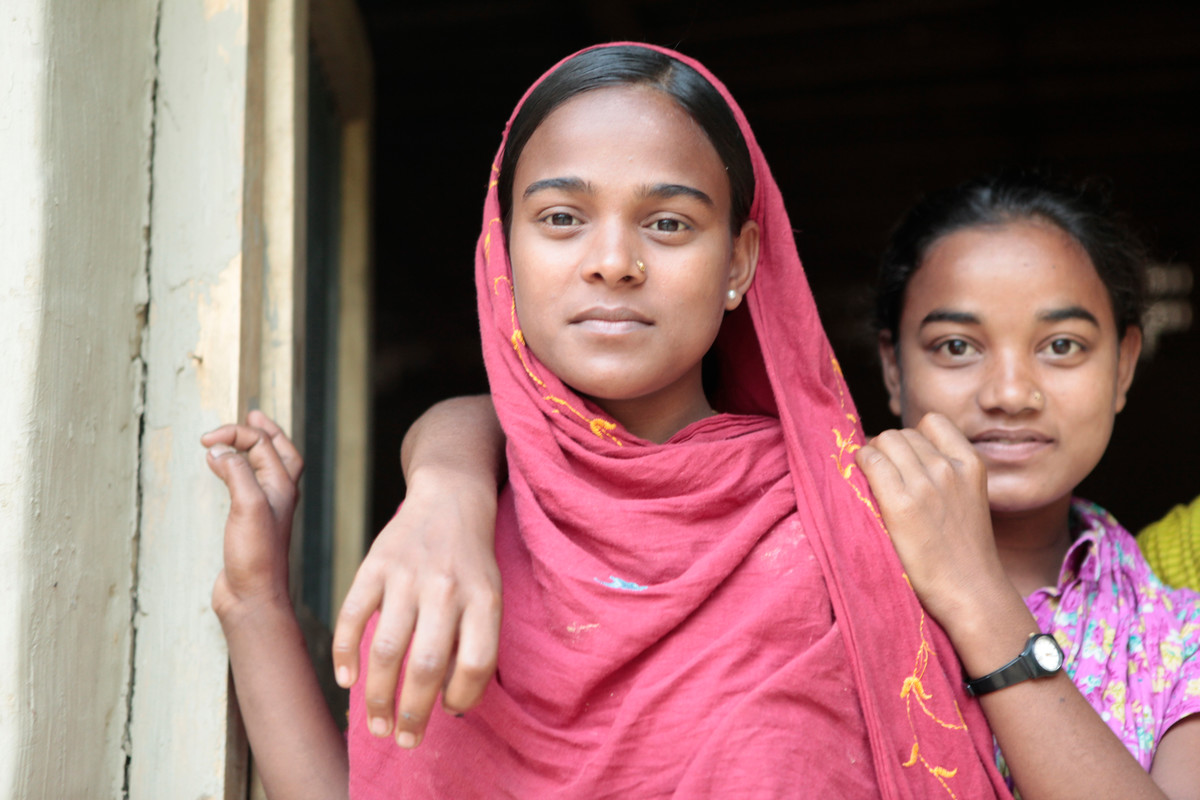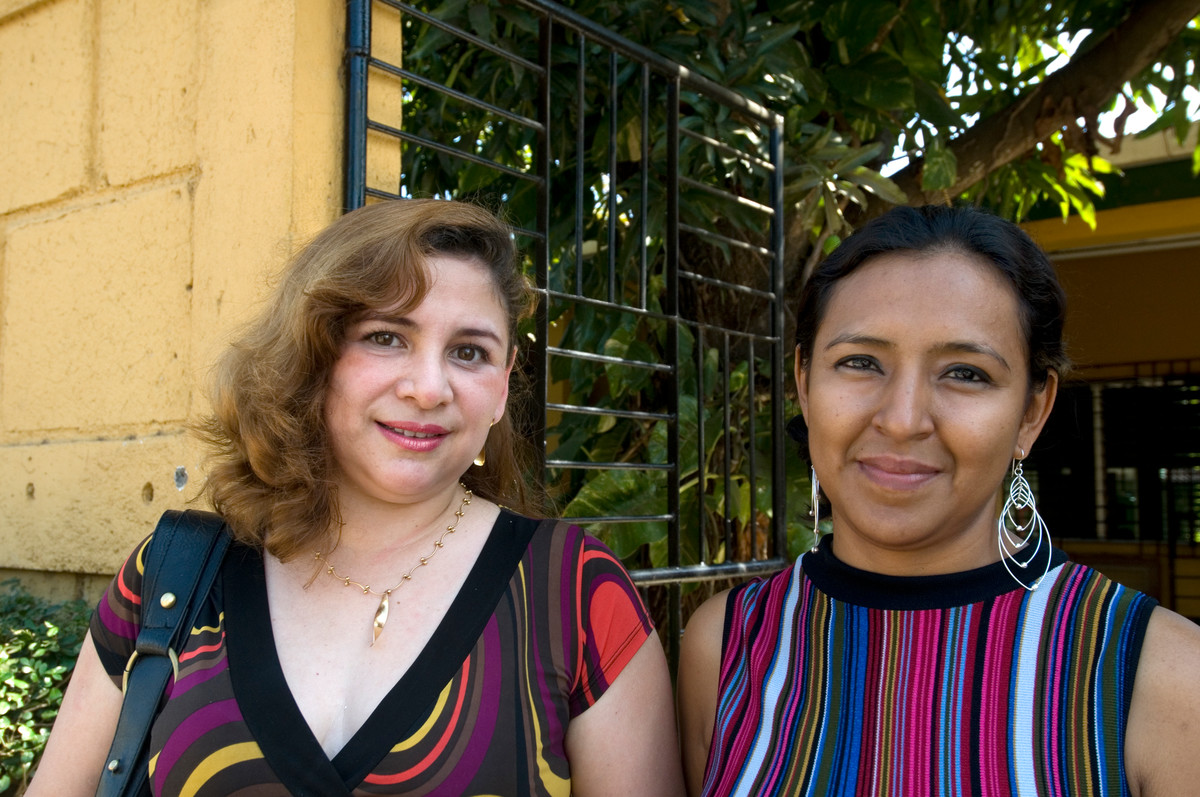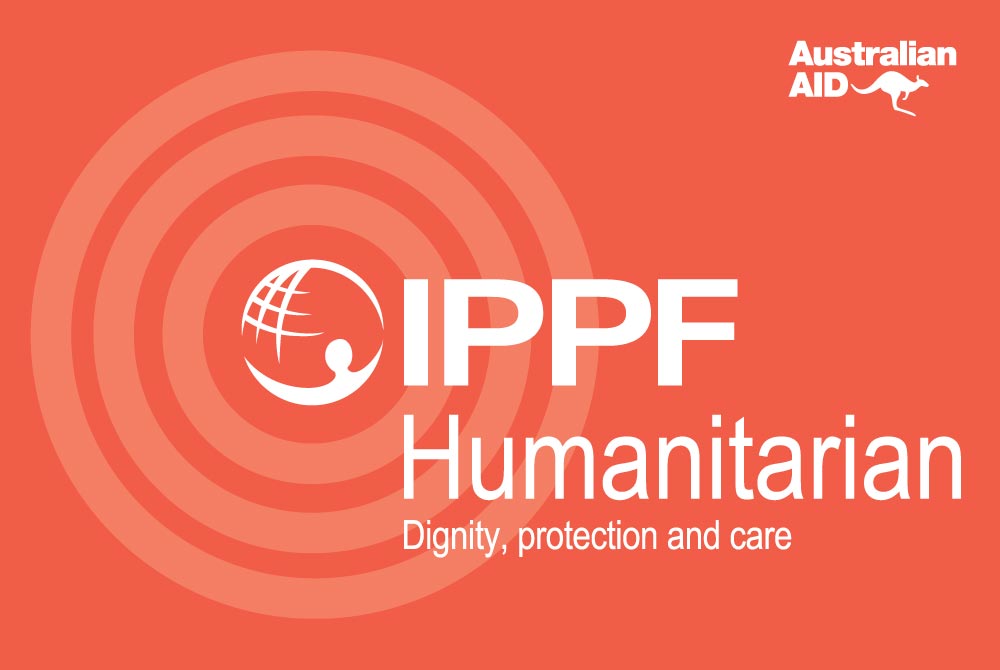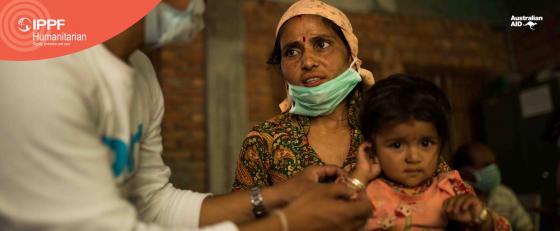
| 09 March 2017
The 61st Commission on the Status of Women: ‘women’s economic empowerment in the changing world of work’
The Commission on the Status of Women (CSW) is a functional commission of the United Nations Economic and Social Council (ECOSOC). It is the principal global policy-making body dedicated exclusively to gender equality and advancement of women. Every year, representatives of member states gather at United Nations Headquarters in New York to evaluate progress on gender equality, identify challenges, set global standards and formulate concrete policies to promote gender equality and women's empowerment worldwide. This year’s priority theme of the CSW is ‘women’s economic empowerment in the changing world of work’. IPPF is working with partners to make sure that sexual and reproductive health and rights are considered central to women’s economic empowerment within negotiations at the CSW. "Sexual & reproductive health&rights shape women’s chances to access and stay in decent work" @PreeSundaram, IPPF https://t.co/IJWikHVSrB #CSW61 — IPPF Global (@ippf) March 13, 2017 Read our latest briefing to find out why sexual and reproductive health and rights are central to women’s economic empowerment. See the full list of IPPF hosted events at the Commission on the Status of Women (CSW) 61. WANT TO GET INVOLVED? SUBSCRIBE NOW TO GET UPDATES FROM IPPF SUPPORT OUR WORK WITH A DONATION

| 02 March 2017
Bangladesh’s new Child Marriage Act is a step backwards for young women warns IPPF
New legislation in Bangladesh which will allow girls under the age of 18 to be married-off legally in “special circumstances” is a step backwards for young woman, the International Planned Parenthood Federation has warned. The Child Marriage restraint Bill 2017 gives parents or guardians the ability to seek a court order for children to be married-off in their “best interests.” Currently, it is illegal for girls under 18 or men under 21 to marry in Bangladesh, although the law is widely flouted. The new law opens the possibility of girls who have been raped being married to their attackers or girls who have become pregnant being married to abusers. Anjali Sen, regional director for IPPF’s South Asia Region, which includes Bangladesh, said the new legislation was a move in the wrong direction. “Any legislation which opens the possibility of young girls being forced into marriage is going the wrong way,” she said. “Countries around the world and in the South Asia region are looking to close loopholes around child marriage and tighten restrictions, rather than create new exceptions which allow it. “We know that early marriage for young girls is likely to lead to them dropping out of school and narrows their life chances. “This new legislation appears to work against Bangladesh’s welcome commitment to ending child marriage – which means marriage before 18 – by 2041 and reducing it by a third by 2021. “IPPF would urge the Government of Bangladesh to think again about this legislation and the rights of the young girls it threatens to undermine.” Bangladesh has one of the highest rates of child marriage in the world, according to a 2016 UNICEF report, which said 52% of girls in Bangladesh were married before the age of 18 and nearly 20% by 15. IPPF is a global federation of locally-owned associations and partners providing and campaigning for sexual and reproductive health care and rights in 170 countries.

| 02 March 2017
Canadian funds to champion sexual and reproductive health and rights welcomed
The International Planned Parenthood Federation (IPPF) today welcomed the Honourable Marie-Claude Bibeau, Minister of International Development and La Francophonie, announcement of $4 million for support to sexual and reproductive health and rights. The funding announcement to IPPF came as governments pledged their support at the She Decides conference in Brussels, Belgium today. “Every woman + girl must be treated with dignity and respect.” Watch Canada’s position on sexual reproductive health & rights #SRHR pic.twitter.com/3xxPkne8wG — Development Canada (@CanadaDev) February 3, 2017 Tewodros Melesse, IPPF Director General said on news of the announcement “We are delighted that the quality of our work to reach the world's poorest and most vulnerable women and girls is recognised through this contribution from Global Affairs Canada. Ensuring women and girls health and rights is critical for their development, that of their family and the advancement of their country.” “Canada's support is part of their ongoing commitment to champion sexual and reproductive health and rights and to be part of the global movement to advance women’s health and rights.”

| 17 February 2017
Supporting women during humanitarian crisis
The Australian Parliamentary Group on Population and Development (APGPD) welcomes the commitment by the Australian Government to continue funding the International Planned Parenthood Federation’s work with women during humanitarian crises. Over 800 women and girls are dying every day from complications in pregnancy and childbirth. Three in five preventable maternal deaths occur in conflict, displacement and natural disasters. When disasters hit we must not forget women still need access to safe birthing spaces, family planning services, and protection against sexual violence. Since commencing in 2007 the IPPF SPRINT (Sexual and Reproductive Health Program in Crisis and Post-Crisis Settings) initiative has supported over 890,000 people through times of disaster including in Fiji, Nepal and Vanuatu. The APGPD is pleased to see the Australian Government continuing to support women in accessing sexual and reproductive health services. While other countries are pulling back and leaving women and children vulnerable it is vital Australia continues to show global leadership focused on gender equality. Access to reproductive health services is a key component of women’s empowerment, with better health outcomes leading to better education and economic outcomes for all. The Australian Parliamentary Group on Population and Development (APGPD) is a cross-party group of parliamentarians who work collaboratively to champion sexual and reproductive health and rights, gender equality and women’s empowerment globally. The APGPD was established in 1995 as part of a global network of parliamentary groups and is a member of the Asian Forum of Parliamentarians on Population and Development.

| 13 February 2017
IPPF celebrates the launch of humanitarian initiative: SPRINT 3
Melbourne, February 8, 2017 – The International Planned Parenthood Federation (IPPF) is proud to launch the latest phase of the SPRINT initiative, delivered through IPPF’s new, dedicated global humanitarian platform, IPPF Humanitarian. Together, they are thought to be the single largest humanitarian effort worldwide exclusively focused on sexual and reproductive health and rights in crises. Commencing in 2007 and now in its third phase, the SPRINT initiative continues to be generously supported by the Australian Government. Running from 2017 to 2019, Phase 3 of SPRINT will enable IPPF to reach communities affected by natural disasters – particularly in the Asia Pacific region. Very welcome announcement made today by @JulieBishopMP at #AAC2017 of $9.5m for sexual and reproductive health during crises via @ippf — ACFID (@ACFID) February 14, 2017 Sexual and reproductive health and rights in emergencies are too often overlooked and under-funded. When left ignored, women and girls in crisis situations are particularly vulnerable and face numerous health and psychosocial risks. At any given time, one in five women in a crisis may be pregnant, whilst over 500 women and girls die daily in conflict and fragile states from complications related to pregnancy and childbirth. Thank you @IPPF DG Tewodros Melesse for inspiring words on how reproductive health saves lives & helps #womenandgirls globally #SRHR pic.twitter.com/rFCGsIiDgy — Jamie Isbister (@AusHumanitarian) February 14, 2017 The SPRINT initiative addresses this situation by ensuring access to high-quality care through the Minimum Initial Service Package for Reproductive Health, an internationally recognised standard. IPPF and its Member Associations work to support national governments of disaster-prone countries to be ready when disaster strikes, and more able to respond and recover. IPPF’s Director General, Mr. Tewodros Melesse, has welcomed the launch of SPRINT 3 and the official opening of the new IPPF Humanitarian Hub in Bangkok, Thailand and Sub-Hub in Suva, Fiji. “IPPF praises the ongoing support and leadership of the Australian Government and the generosity of the Australian people in prioritising this critical and under-funded element of humanitarian response. IPPF is immensely grateful for the opportunity to continue its long-standing partnership with the Australian Government, together ensuring that women and girls in crises can access life-saving sexual and reproductive health care when they need it most.” Press Contact Johanna Wicks, Chief – Australia and New Zealand Office, IPPF Email: [email protected] Phone: (+61) 3 8459 2185

| 30 January 2017
Extended Mexico City Policy detrimental to health care of world's poorest
Mexico City Policy will have a devastating impact for International Planned Parenthood Federation (IPPF) with its extension far beyond family planning. Restrictions into support for HIV, maternal health and infectious diseases programmes will mean that millions will be denied lifesaving healthcare they need. The policy will hit hardest, the women living at the margins of society – the poorest, the most remote and those under 25. The Global Gag Rule, also known as the Mexico City Policy, denies US funding to organizations who provide any abortion related services, including counselling, even when such services are legal in a national context. IPPF has a special focus on working with the world’s most poor and vulnerable and tailoring services to meet their needs. At country levels, the US funding loss will reduce or halt IPPF’s services and arrest opportunities to scale up, build capacity and reach more people. Tewodros Melesse, IPPF Director General, said in reaction, “For over 30 years, the Mexico City Policy has played politics with women’s lives. It is a cynical attempt to silence the choice and voice of the world’s poorest women. As a champion for them and people everywhere, we will not be held back. "This extended policy covers every aspect of IPPF’s work with the world's poorest people. It also fails in its stated intent to reduce the global incidence of abortion. With the expansion of its restrictions to work on broader health efforts it is short-sighted and dangerous, and threatens years of IPPF gains to advance the health and well-being of communities and undercuts health care access for millions worldwide.” The extended policy will now affect IPPF’s long record of working on HIV prevention in more than 20 countries covering Africa and Latin America often providing clients integrated sexual and reproductive health care services. The Global Gag rule could also endanger emergency funding for Zika prevention, education and health services in Latin America and the Caribbean, where the epidemic continues to rage. Examples of Country Impact: Barbados: IPPF partner Barbados Family Planning Association receives funding from the U.S. government to provide HIV prevention and education services to at-risk, hard-to-reach populations including men who have sex with men. The Caribbean has the second-highest HIV prevalence rate among adults after Sub-Saharan Africa. Nepal: IPPF aims to increase voluntary use of family planning services by increasing accessibility and availability of quality comprehensive family planning services to the hard to reach, disadvantaged, poor and adolescent populations in 11 districts and increase access to voluntary family planning information, education, and services. Nepal has failing and patchy family planning coverage which is often only available at certain times of the year. IPPF are working closely with the government to expand and strengthen static clinics in selected district hospitals, health posts and health facilities with birthing centers to reach all year round, reaching eligible couples with high unmet need. Malawi: The Family Planning Association of Malawi are providing much needed integrated family planning and HIV prevention to young adolescent and women in Malawi via clinics and outreach teams travelling to communities to raise awareness and offer services for vulnerable young women to prevent and treat sexual gender based violence, HIV infection and access to family planning. Without funding they will no longer be able to provide or expand this vital information, support community learning and offer both family planning services and treatment for sexual and gender based violence in one place. The rule blocks critical funding for health services like contraception, maternal health, and HIV prevention and treatment for any organization that refuses to sign up to it. For IPPF, it means foregoing US$100,000,000 that would be directed to proven programmes that provide comprehensive sexual and reproductive health services for millions of women and girls who would otherwise go without vital services that save lives. IPPF is the world’s largest women’s health network with members in 170 countries with over 45,000 service delivery points delivering over 300 services a minute. Individuals can donate to IPPF’s online appeal www.ippf.org/donate WANT TO GET INVOLVED? SUBSCRIBE NOW TO GET UPDATES FROM IPPF SUPPORT OUR WORK WITH A DONATION JOIN OUR THUNDERCLAP View my Flipboard Magazine.







